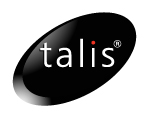Personal Semantic Data
Website
http://semanticweb.org/wiki/Personal_Semantic_Data
Summary
Personal information management (PIM) is an active area of interest for research and industry alike. While our time and energy resources remain constant, the amount of information that needs our attention grows exponentially with the advances in communications and information sharing tools. The tools that we use to manage our personal information have evolved over time from the pen and paper day planners to their numerous digital replacements. The desktop used to be at the centre of the users' PIM universe, containing their contacts, emails, events, appointments, and to-do lists. However, as the amount of stored information and the number of applications available to handle it grew, desktop data became harder and harder to manage, as it was locked-in by applications and stored in application-specific formats. The Semantic Desktop, the result of applying Semantic Web technologies to the desktop, enables better interlinking of personal data, making it easier to search, browse and organise. Nowadays, the transition is made more and more towards mobile devices, the majority of which have Internet connectivity. This has lead to an increasing share of information, like calendar and email, being stored on users' various devices or online. Applications such as Chrome OS or Google Documents enable users to store personal documents in the Cloud, while social relations are managed through social Web sites like Facebook or MySpace. In parallel, the Semantic Web has gained considerable momentum, especially through initiatives like Linking Open Data, that have generated a vast amount of structured data available on the Web. Projects like FOAF and SIOC have enabled the publication of machine-readable information about people and their social interactions. The boundaries between the desktop and the Web become less discernible. The desktop is no longer the single access point to personal information, but one of many personal information sources. As personal information is becoming more fragmented across multiple devices it requires extra effort to synchronize, duplicate, search and browse. We believe that semantic technologies can improve significantly the user's experience and relieve some of the stress associated with managing disparate information. Personal semantic data is scattered over several media, and while semantic technologies are already successfully deployed on the Web as well as on the desktop, data integration is not always straightforward. The transition from the desktop to a distributed system for PIM raises new challenges, which represent the subject of this workshop.
ORGANIZERS
Laura Dragan - Digital Enterprise Research Institute (DERI), National
University of Ireland, Galway
Bernhard Schandl - Department of Distributed and Multimedia Systems,
University of Vienna, Austria
Charlie Abela - Department of Intelligent Computer Systems (ICS),
University of Malta, Malta
Tudor Groza - Digital Enterprise Research Institute (DERI), National
University of Ireland, Galway
Gunnar Aastrand Grimnes - DFKI GmbH, Germany
Stefan Decker - Digital Enterprise Research Institute (DERI), National
University of Ireland, Galway










